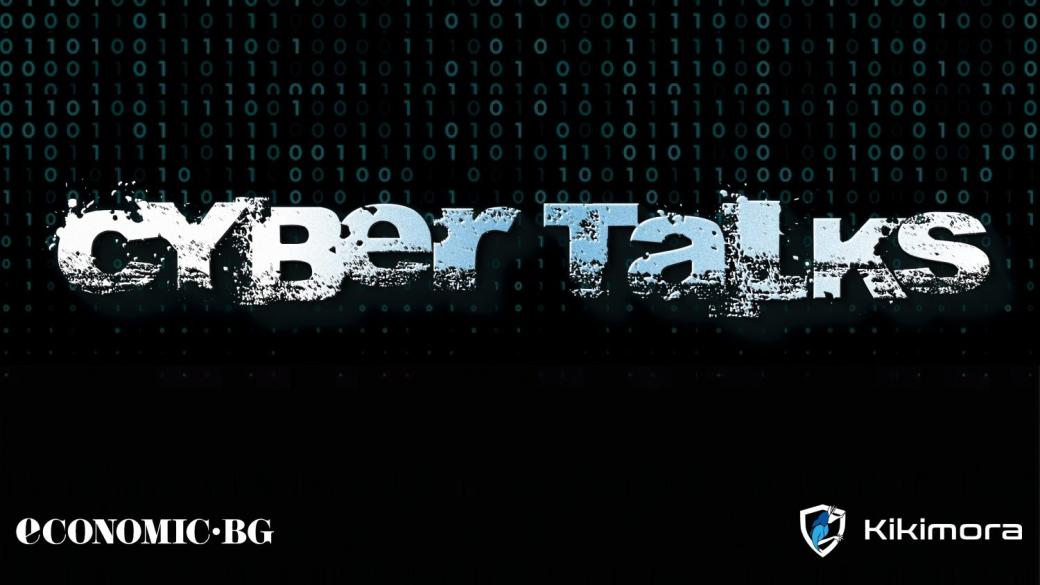Videocast | Cybersecurity in the Age of Artificial Intelligence
Follow the new videocast series White Hat Riddles, hosted by Krasimir Kotsev - cybersecurity expert and founder of SoCyber and Kikimora, and Angel Sirakov - marketing director at the same companies

What do ethical hackers, artificial intelligence, and cyber threats from North Korea have in common? The first episode of the White Hat Riddles videocast series—the place where cybersecurity meets the real world—will answer these and many other cybersecurity questions.
In the weekly series, hosts Krasimir Kotsev - cybersecurity expert and founder of SoCyber and Kikimora.io, and Angel Sirakov - marketing director at the same companies- will discuss current topics from the world of information security.
The White Hat Riddles videocast will feature conversations with leading experts from Bulgaria and the world who work daily to protect digital infrastructure.
The content will be useful for professionals as well as entrepreneurs, organizations, and anyone who wants to better understand the risks in the digital environment.
Economic.bg is the media partner of the YouTube show. We will watch and report on the key highlights of the episodes.
What will you see in the first episode?
Cybersecurity in the Age of Artificial Intelligence: Ethics, Threats, and the Future
With the development of digital technologies and the integration of artificial intelligence (AI) into our daily work, the topic of cybersecurity is becoming increasingly relevant and necessary. The White Hat Riddles videocast series will provide valuable perspective on the importance of staying protected in the modern digital world – all of which from professionals with real-world experience on the "front line" of cybersecurity.
The Ethical Hacker – A Modern Superhero
We often forget that hacking is not necessarily a bad thing. In fact, ethical hackers – the so-called white hat experts – are the ones who fight real threats every day, testing systems and finding vulnerabilities before malicious black hat hackers do. They are the “Batmans” of the digital world – elusive but determined to protect your data. Cybersecurity is not just a technical discipline – it is a matter of moral responsibility.
Targeted Organizations: from small businesses to hospitals
Small and medium-sized businesses, as well as organizations of public importance, such as hospitals, are among the most frequently attacked by malicious hackers. The reason – they lack resources for protection and have low awareness of the threats. The hosts of the videocast emphasize that 70% of attacks begin through social engineering or phishing. These are attacks that do not require complex malicious code but exploit human naivety and lack of training. Education and risk awareness are the first and most accessible lines of defense.
Security ≠ Compliance
Meeting all the requirements of GDPR, ISO, or NIS2 does not automatically make your business protected. Many companies meet the formalities of compliance without actually building effective protection. Conversely, some innovative businesses have a high level of technical security but do not meet regulatory requirements. The real value lies in finding the balance between the two – information protection and legal accountability.
Where do the threats come from?
Cyber threats often originate from countries with weak regulation or lack of control over cybercrime – most often these are former Soviet republics, China and North Korea. Interestingly, technical skills often come from Western countries, but the lack of control in other regions makes them “hot spots” for malicious campaigns. There are also cases of “mercenaries” – experts who sell their services to the highest bidder, including for the creation of targeted malware.
AI – the new battlefield
AI applications are opening a new frontier in cybersecurity. Large Language Models (LLMs), such as ChatGPT, are used by more and more companies. However, they also create new risks – prompt injection, sensitive information leakage, response manipulation, and hallucinations.
The first episode features Kristian Kamber, co-founder of Splx (an AI security company), who talks about the need for continuous testing, not just a one-time penetration test, but also integrating security into the CI/CD process, as is done with traditional software testing.
Hallucinations and dangers of LLM
Hallucinations in AI models may seem harmless, but they can lead to serious consequences – wrong advice, reputation damage, even PII data leaks. The causes of AI hallucinations stem from the training method, the length of the dialogue and the language model. Recommendations include limiting the length of sessions, having clearly defined permitted and prohibited actions and real-time monitoring.
Cybertest automation – myth or reality?
Cybertest automation through AI is no longer a myth. There are platforms that use dynamic contexts, update their logic every two weeks, and simulate real user behavior. Automated red teaming is no longer just a theory, but a working practice – especially in an AI environment that changes rapidly and requires continuous adaptation.
Pop culture and educational value
Films like Hackers (1995) and the new TV series Zero Day (starring Robert De Niro) offer an interesting look at the representation of cyber threats in popular culture. Although stylized, they successfully convey the complexity of digital communication and the vulnerabilities of systems – sometimes with more realism than we expect.
For more interesting topics from the world of cybersecurity, follow the new videocast White Hat Riddles.
Translated by Tzvetozar Vincent Iolov

 Georgi Zhelyazkov
Georgi Zhelyazkov